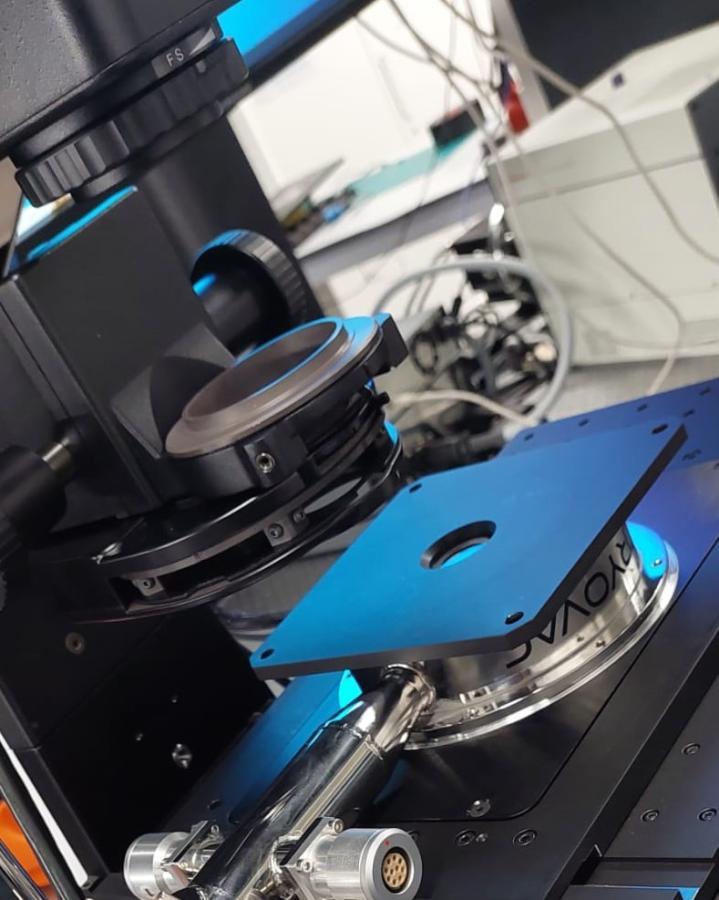The Institute of Applied Physics at the Technische Universität Dresden is well known for its research into the physics of light. The study includes how light interacts with matter, the relationship between light and energy, and what we can learn from the properties of emerging classes of nanomaterials by observing light.
Professor Chernikov leads the team whose goal is to develop a fundamental understanding and create advanced concepts for the manipulation and control of light emitters on the nanoscale. The university tasked Prior with creating a robust and stable stage that ensured the success of their experiments. The stage needed to withstand a heavy load of a microscopy cryostat without affecting the performance, whilst withstanding high vacuum and cryogenic temperatures down to 5 K (-268 °C). The H117 meets these requirements as it boasts an average metric accuracy of 0.059 µm and a maximum load of up to 10 kg.
Professor Chernikov goes on to explain:
“We use the ProScan H117 stage in combination with microscopy cryostats and inverted microscopes. Our requirements include a combination of accurate positioning and heavy load plus high stability with respect to any lateral forces.
“The Prior H117 stage perfectly fulfills these distinct requirements to move fast, easily, and reliably under load or, alternatively, fixing a single position for something like 14 hours or even longer.”
Learn more about the ProScan H117 stage



